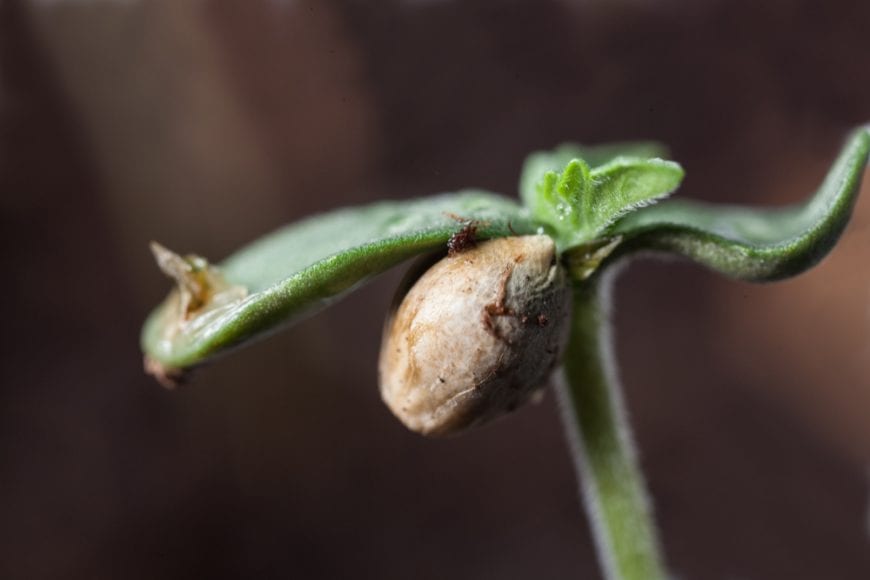The devastating consequences of Traumatic Brain Injury (TBI) may be reduced with the use of cannabis medicine.
Traumatic brain injury (TBI) accounts for approximately 1.5 million visits to the emergency room and hospitalizations every year. Young men are vastly over-represented within this population. Still, doctors consider the majority of head injuries mild, and many patients do not receive medical treatment. These patients can go on to have longer term consequences for the injured brain.
The most alarming statistic, perhaps, is that individuals suffering from TBI have a lower life expectancy, deteriorating at about 3-fold faster rate than the average population. This is because the pathophysiological events of TBI lead to cell death, excitotoxicity, neuroinflammation and cerebrovascular breakdown. These cell-level damaging mechanisms associate with long term physical, cognitive, and psychological disorders that impact immensely on quality of life.
Even if TBI is “mild”, the devastating consequences of this injury can result in the same consequences. Despite the sizeable healthcare burden imposed by TBI, successful therapies are lacking and the existing pharmacotherapies are ineffective.
A growing body of evidence points to the potential of the endocannabinoid system to alter the cellular events that occur in the hours, months and days post-TBI, which may be critical in reducing the neuronal damage and downstream functional outcomes.

Anandamide Increase is Good For The Injured Brain
Pre-clinical work has shown that in the hours-to-days following the injury, there is a gradual increase in the endogenous cannabinoid, anandamide, in the injured brain, suggesting that perhaps this reflects a self-neuroprotective response. After the initial injury, doctors call the area of the contusion “the primary lesion” or the “infarct.” Doctors call the area surrounding the infarct the paracontusional area. Unfortunately, when you injure your brain, not only do you damage the of area of initial impact, but also the physiology of the surrounding area. Unfortunately, this effectively expands the area of the brain that experiences damage.
At the cellular and the molecular level, neuroinflammation ensues, which further promotes cell death. Cerebrovascular breakdown follows, compromising the integrity of the blood-brain barrier, which serves as a protective gate-keeper between the systemic circulation and the brain. The accumulated research of cannabinoids on traumatic brain cell death have so far proven efficacious in two areas: downgrading neurodegeneration and reducing lesion size.

CB2 Helps The Injured Brain Too
The death of neurons immediately following a TBI is greatly reduced with the administration of CB2 receptor agonists, or inhibitors of enzymes that normally degrade endocannabinoids. Also, when scientists only blocked the CB1 receptor, or a combination of that and the CB2 receptor, making them unavailable for binding by cannabinoids, the protective effects on lesion volume and neuroinflammation did not happen. This indicates that CB1 and CB2 receptor signaling are instrumental in therapeutics of TBI.
TBI-related neuroinflammation initiates from activated microglia, the scavenger cells of the brain. Thus inhibiting the activation of microglia may be an important therapeutic strategy. Indeed, tests show that elevation of endogenous cannabinoids results in prevention of TBI-associated microglia activation.
The studies conducted so far focus on administering cannabinoid agonists after the TBI has taken place. However, one study did look at the patients who sustained TBI after cannabis use. The hope was to gain insight into whether administration of THC prior to the injury had a protective effect. The researchers found interesting results. The individuals who suffered from TBI after consuming THC had lower mortality rates. This was a 3-year retrospective study. Based on previous work conducted in mice, it is possible that low dose THC provides impairment protection and serves as pre-conditioning.

What About CBD?
Furthermore, another cannabinoid, CBD, given its anti-inflammatory properties, may be of particular therapeutic potential in TBI. Tthere are no studies at present investigating the use of CBD in TBI therapeutics. However, it is a promising future avenue of investigation for two reasons. Firstly, CBD is a potent anti-inflammatory molecule that in the context of TBI would downregulate neuroinflammation of the brain tissue at both the contusion site and in the paracontusional area. Secondarily, scientists expect reduced inflammatory cells and their damaging action on the surrounding tissue to result in reduced lesion volume. That would mean a reduction in the extent of the injury.
Abundant and growing pre-clinical research suggests that cannabinoids exert many beneficial effects that may ameliorate multifactorial TBI pathology. These include both endogenous and phytocannabinoids (found in the plant). Distribution of CB1 and CB2 receptors in the neural tissue may be one of the key aspects of these effects. Another relevant factor is the dosing of THC and CBD. In case of THC, some doctors suggest that it will have ameliorative effects on TBI at a low dose administration. While we need more research yet, these factors indicate that cannabis may help the injured brain.






DAVID PEARSON
I HAVE A SERIOUS BRAIN INJURY AS A RESULT OF A CAR ACCIDENT AND A FRIEND OF MINE HAS CANCER ON HIS BACK. ANY INFO ON THIS TYPE OF PROBLEM WOULD BE AN ASSET. THANKS DAVID
Joe Regester
Using full spectrum cannabis oil directly on the cancer can have dramatic effect on the cancer.
You should use full spectrum cbd oil, from cannabis, as it works to bring down inflammation of the brain. Then you can start to heal.
Kristine Velsvik
Hello.
Im using Cannabis, raiting by my doktor. But i get soo taierd. I dont like that
I have MULTIPPEL SCLEROSE( MS).
It was foun on my blek brein in 2003.
But now its gon too my back.
And yes im skeerd. Can i get eny else cannabis so i weaik up, not sleep
Kristine
Anna Svensson
Very Interesting but It would be good if these statements where backed up with references.
Jennifer Grant
Hi Anna – all citations are embedded within the article. Look for green text.
Patricia Krajcik
Tbi’s from deer dodging accident May 1st, 2002. Is it too late for CBD OR MEDICAL MARIJUANA to help me?
Jennifer Grant
There are no studies on timing of treatment, unfortunately. There, are however, many that address the neuroprotective benefits of cannabinoids for the aging brain. So, it’s never too late. It’s just a matter of how much change will you see. There are, currently, no studies on that.
Leon
The night my aneurysm was leaking I was smoking weed .Could this be why I survived.
Kay
Very interesting.
A friend had brain trauma many many years ago ( violent attack ) and we went right to the hospital with joints for him ( because we were smokers ) . He swears that getting THC/CBD, from the Moroccan hash helped reduce the extent of the damage.
I take my CBD Shifa oils daily, and I felt it pretty soon just lift my mood and clear my head up a bit to.
Such and amazing and fascinating plant..
Rebecca Pearson
I smoked for years before I came out of a car at 80kph.I had 2 brain bleeds and a brain shear,induced coma all that fun stuff.but honestly 5yrs later I’m still smoking and I feel the reason I bounced back so quickly was because of weed.